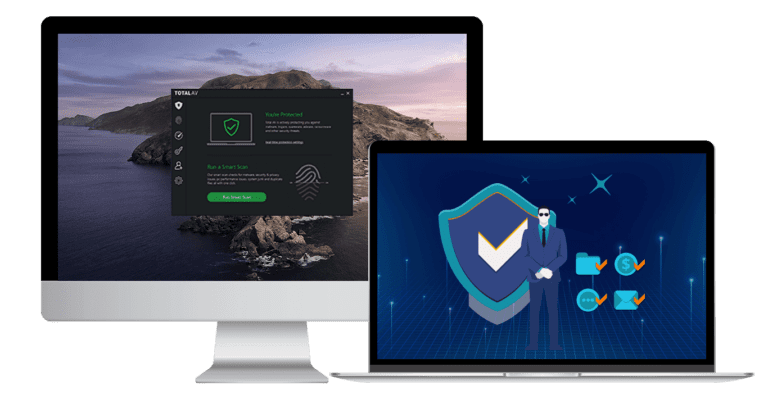Best Internet Security Software 2023
Compare the Best Antivirus Software for all your Devices
- Secure Your Web Browsing
- Scan Viruses & Protect all Your Devices
- Identify & Remove all Threats
- 30 day Money-Back Guarantee

2024 Editor’s Pick
1

- #1 Antivirus Provider 2023
- Removes Viruses, Adware, & Malware
- Includes Firewall Protection
- Advanced Ransomware Protection
Available on:

outstanding
2

- Includes Smartphone Antivirus
- Advanced Firewall included in all plans
- Compatible with all operating systems
- Perfect for home users
excellent
3

- Compatible with all devices
- Advanced Firewall included
- Removes Viruses, Adware, & Malware
- Spam & phishing e-mail blocker
Great
4

- One solution to protect your devices
- World-class virus and malware protection
- Includes Smart Firewall and Password Manager
- Darkweb Monitoring powered by LifeLock
5

- One of the most trusted around
- Compatible with all devices
- Perfect for home users
- Advanced Firewall included
#1 2023 Editor’s Pick

FREE
- #1 Antivirus Provider 2023
- Removes Viruses, Adware, & Malware
- Includes Firewall Protection
- Advanced Ransomware Protection
Available on:

2

$29.00
- Includes Smartphone Antivirus
- Advanced Firewall included in all plans
- Compatible with all operating systems
- Perfect for home users
3

$19.00
- Compatible with all devices
- Advanced Firewall included
- Removes Viruses, Adware, & Malware
- Spam & phishing e-mail blocker
4

$34.99
- One solution to protect your devices
- World-class virus and malware protection
- Includes Smart Firewall and Password Manager
- Darkweb Monitoring powered by LifeLock
5

$44.99
- One of the most trusted around
- Compatible with all devices
- Perfect for home users
- Advanced Firewall included
What is an Antivirus Software?
An antivirus is a software program designed to detect and remove malware from a computer or mobile device. Traditional antiviruses scan your files against a built-in malware database, flagging unsafe files that match the database. More advanced antivirus programs use machine learning, heuristic analysis, and cloud-based malware directories to detect and remove zero-day threats and very sophisticated malware. All of the best antiviruses offer real-time protection, so they scan every file before it executes to ensure malware never even starts running on your device.
Why do you need an Antivirus?
In recent years, people have become increasingly reliant on electronic devices. It is crucial now, more than ever, to have adequate security to protect your personal information from viruses and hackers. That’s where antivirus software comes in. Antivirus software, also known as anti-malware, is a computer program used to prevent, detect, and remove malicious software from your computers, tablets, and mobile devices.
There are many different types of malware, viruses being the most well-known. Here we have highlighted some of the lesser-known types of malware that all security-conscious users should be familiar with. To learn more, follow our blog for the latest updates and information.
Disclaimer
AntivirusAdviser’s reviews are the honest opinions of our team of expert cybersecurity professionals. Our reviews are neither paid for nor sponsored by antivirus providers, although we may earn an affiliate commission through some of our referral links.
At AntivirusAdviser, our goal is to provide transparent, informative, and easy-to-understand reviews of antivirus solutions for all devices and operating systems. We hope these reviews will give you the insights needed to make an informed decision about your antivirus purchase.
Internet Security: Protecting Your Device, Data and Identity in 2021
Did you know that every day, there are over 80,000 cyber attacks totaling over 30 million attacks per year? And over 1 million people in the US will be a victim of identity theft this year alone.
Just think about that for a minute.
If you’re not focusing on Internet security for yourself or your business, you’re leaving the door open to be a potential hacking victim.
It’s a scary thought. But most people think that their PC, iPhone or Android are safe and secure out of the box. They’re not.
What is Internet Security?
The term “Internet security” is vague. The Internet is massive, with a lot of moving parts that are added often. As a general term, the idea of Internet security is broad, but it always has to do with one thing: protecting your data.
You can do much about the:
- 2.5 billion social records breached in 2018 alone, or
- 1.2 billion government records breached per year, or
- 171 million records in the tech industry breached
Unless you’re a business, you can only protect yourself. You can use additional security measures that some of the service providers or financial institutions you use provide to secure a single account.
And you should be using these additional features whenever you can.
The thing is that you need to do a lot more.
Internet security includes a multi-prong approach to security so that you protect the activities and data that you transmit online. You’ll use tactics (more on this in the last section of this article) to protect:
- Your computer and/or devices from being hacked
- Email addresses from being accessed
- Data from being stolen in man-in-the-middle attacks
- Identity from being stolen
- Website from being hacked
The Internet is secure – to a point – but once data is exchanged, this data may be accessed by third parties that you don’t want to access it.
Dangers When Using the Internet
Multiple dangers exist in today’s Internet-driven world. When you go to a website, you might download malware or ransomware. If someone sends you an email, it could be a phishing attack, or a virus might be attached.
There are a lot of dangers when using the Internet, including:
- Botnet: A network of private computers, infiltrated and controlled by malicious software, and used to engage in malicious activities.
- Malware: A form of malicious software that can include worms, Trojans, viruses and spyware.
- Phishing: One of the scams that cybercriminals perform over and over again is phishing for information through email. These scams are becoming more sophisticated, and they lead to money being stolen and accounts being breached.
- Worms: A replicating computer program that copies itself to multiple computers or networks to continue growing and spreading.
You also have to worry about connecting to unsecure networks, such as a hotel’s public Wi-Fi because a hacker may be waiting to perform what is known as a “man-in-the-middle” attack to intercept your data.
Importance of Internet Security
If you use the Internet, you might think all of your data is safe. You use the latest PC, Mac or smartphone, and you trust that your ISP is working to protect your data. But unless you’re taking a proactive approach, your information, data and browsing history can be compromised.
If you’re not protecting yourself, you risk the following:
- Data theft can lead to blackmail and even your personal files, including documents, photos and videos leaking online.
- Identity theft is a nightmare that can cause you to have your credit score plummet, lead to massive debts and even interfere with your private life.
- Device damage can occur with viruses and malicious software that is installed on your computer or device,
Identity theft and fraud rose by 45% between 2019 and 2020 as more people are relying on the Internet for everything from social media to banking and making purchases. Losses can be significant, and if you’re not actively monitoring for a potential breach of your own data, it may take months or years before realizing the significant damage that has occurred.
Internet security is important and works to keep your data, identity and information safe and secure.
Learning how to protect yourself online requires diligence and effort to stay safe online.
How to Protect Yourself (or Business) Online
Multiple steps must be taken if you want to protect yourself or business while online. Proper habits, or protocols if you’re a business owner, can make a significant difference. For example, protocols that do not allow opening of unknown or unverified links can go a long way in stopping spyware, ransomware and phishing attempts.
But for a true, robust method of incorporating security measures that can provide routine monitoring and security, software is required.
Anti-virus software is far more advanced than in the past and offers robust protection to improve your Internet security dramatically. Installing and keeping the following software up-to-date is recommended:
Total AV
TotalAV offers top-of-the-line security for FREE. The antivirus offers far more than virus detection and removal. The TotalAV product can remove:
- Adware
- Malware
- Viruses
A firewall is part of the package, included for free, along with advanced ransomware protection. Built-in safe site offers real-time monitoring of sites to detect suspect websites that may be used in phishing.
Real-time protection keeps your devices and identity safer. When you need a robust digital security system, TotalAV offers protection at a price everyone can afford – FREE.
ScanGuard
ScanGuard extends the use of an antivirus to your smartphone, so you can protect all of your devices, including your smartphones. Recommended for home users, the suite of tools can help find and remove:
- Malware
- Spyware
- Viruses
- Etc.
Built-in phishing protection, an advanced web shield and data breach protection helps keep your identity and devices safe. The DataBreach Protection alerts you if a hacker has gained access to your information or personal data.
Continued protection scans the most recent data breaches to notify you when your data has been compromised. These data records are often part of major breaches, such as the breaches at Yahoo!, Facebook, MyFitnessPal and countless others that you trust with your personal data.
PCProtect
PCProtect is a quick and easy way to protect against today’s Internet security threats in a matter of minutes. Cross platform compatibility protects your data across Android, iOS, Mac and Windows.
Real-time protection is provided against:
- Intrusive ads
- Phishing scams
- Tracking cookies
- Data breaches
An advanced web shield protects you from accessing malicious websites designed to steal your personal data. The software generates and stores unique, strong passwords, and built-in data breach identification is also provided.
Spyware, tracking cookies and even intrusive ads are all blocked by PCProtect.
Installing an antivirus, firewall and even using a VPN can help you protect your data far more than the average Internet user.
